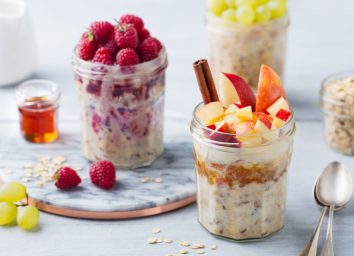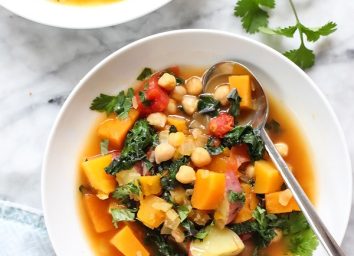20 Diet Mistakes Vegetarians Make
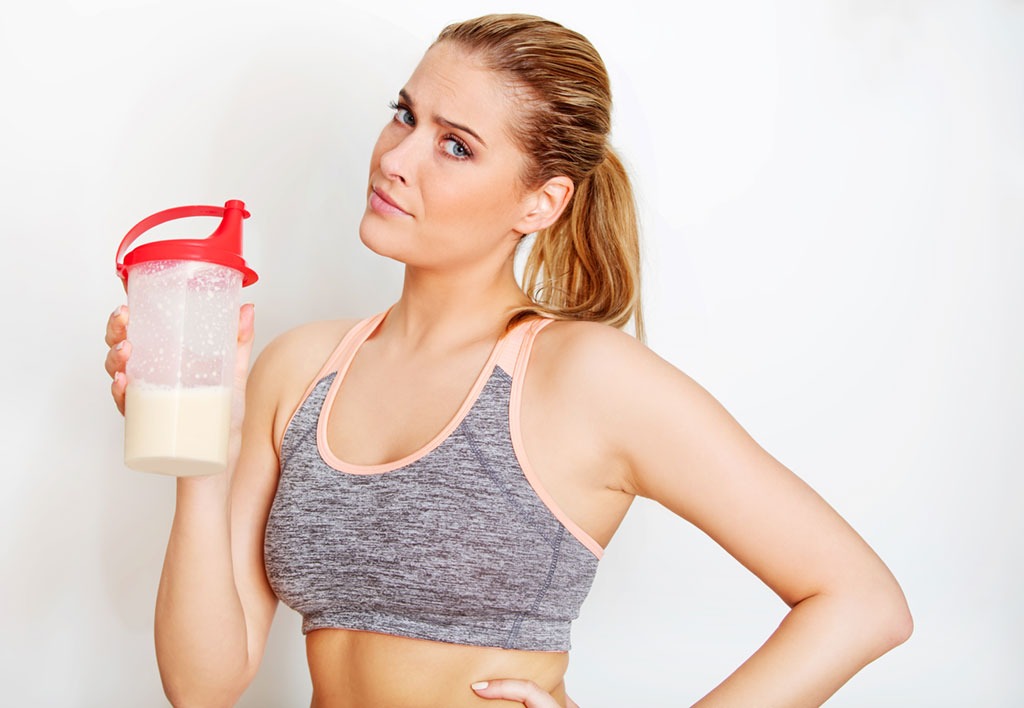
The appeal to join the vegetarian green team is mounting. You've actually started looking forward to those "Meatless Monday" dinners that prove grain- and plant-based meals can be super delish and flavorful. More restaurants are offering innovative vegetarian dishes by using foods like these 26 Best Vegetarian Sources of Protein and there are plenty of health benefits, too. (Constantly eating fatty red meats can raise your LDL—the bad cholesterol—and put you at risk of heart disease.) Numbers-wise, anywhere from six to eight million adults in the United States don't eat meat, fish or poultry, according to a Harris Interactive Poll that the Vegetarian Resource Group commissioned. On top of that, there's several million more who eschew red meat but still eat chicken or fish.
But switching to a vegetarian diet doesn't instantly qualify you as a health pro. (Sorry!) Even vegetarians, who we often perceive as the healthy elite for their salad-noshing, bacon-shunning willpower, make some diet mistakes. Here are 20 slipups that registered dieticians say they notice vegetarians making on the reg. And if you're a newbie vegetarian (or just like shocking news!), don't miss finding out about these 20 Vegetarian Foods That Surprisingly Aren't.
Thinking Any Yogurt Will Do
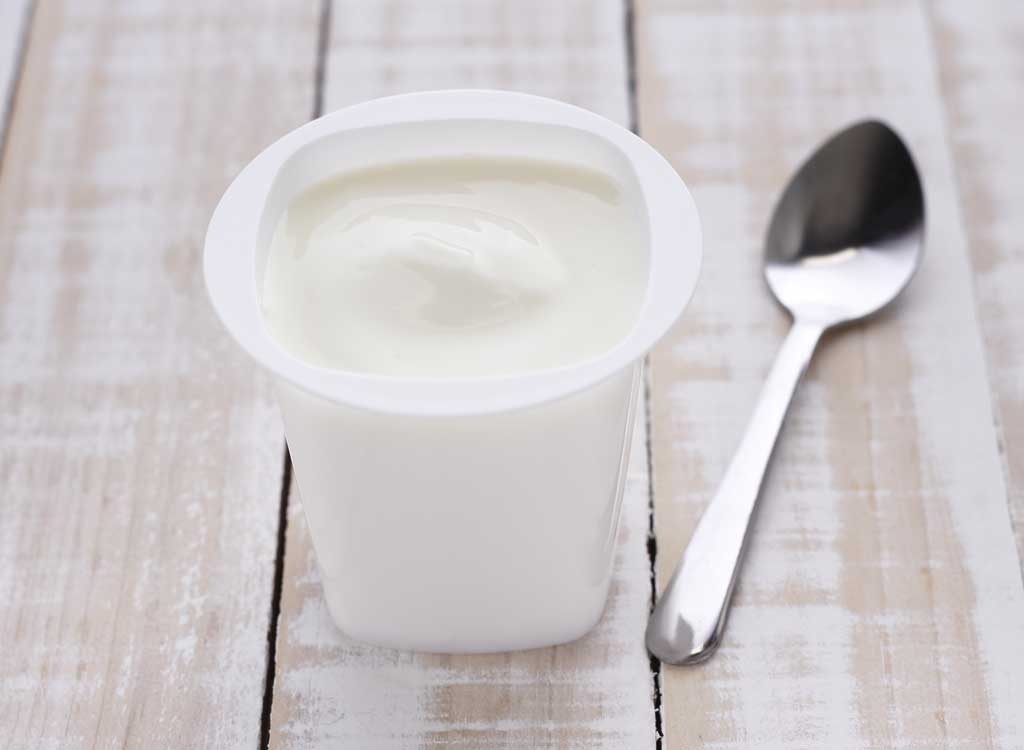
Yogurt can be great: It's packed with a trifecta of protein, probiotics and calcium. But then manufacturers come along and mess with a good thing, packing it with sugar and even putting candy topper lids on it. A good rule to follow in the dairy department: Opt for plain yogurt, dishes Jill Nussinow, MS and RDN and a vegetarian and vegan expert who is the author of Vegan Under Pressure. When you eat yogurt that's not plain, you can get 20 to 25 more grams of sugar, some of it naturally occurring, but much of it added, she says. Need a cheat sheet? These are the 25 Best Yogurts for Weight Loss!
Obsessing About Protein
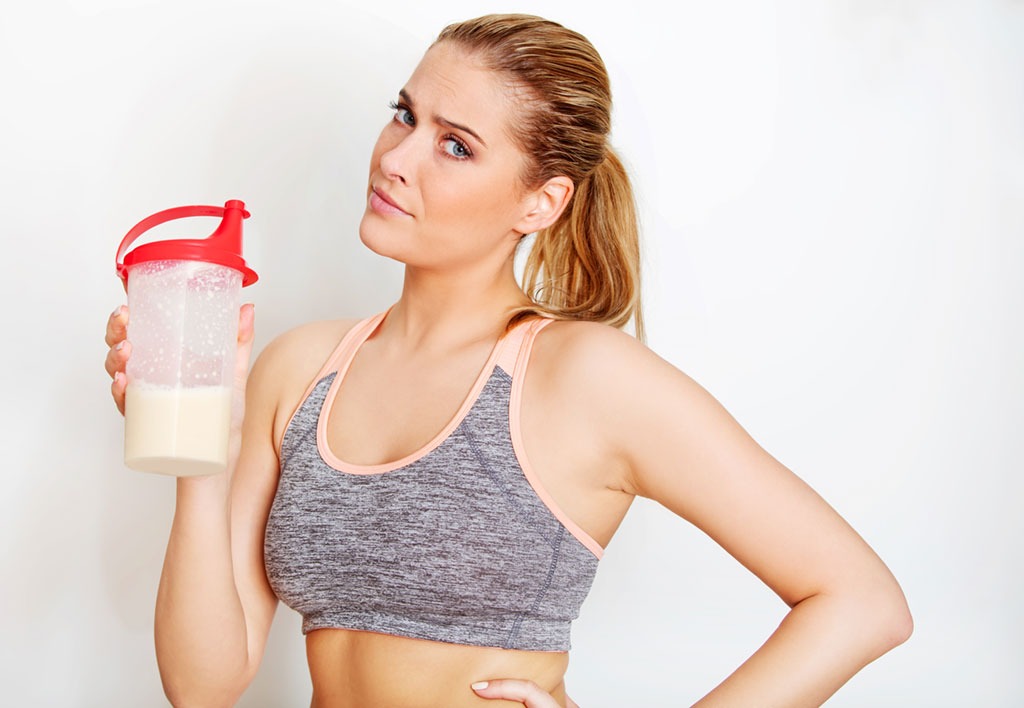
Ah, the myth that vegetarians don't get enough protein! Go ahead, file it under "outdated" along with the grapefruit diet, Crystal Clear Pepsi, and mullets.
"The truth is vegetarian diets most often meet or even exceed protein recommendations as long as overall calorie needs are being met," says Maggie Moon, MS, RDN, author of The Mind Diet.
There's no need for vegetarians to go overboard with protein, she says. You can get protein from nuts, seeds, pulses and whole grains, Moon says. Among her favorite high-protein sources for vegetarians: Almonds, pistachios, walnuts, black beans, red lentils, chickpeas, edamame, soft tofu, bulgur, whole wheat couscous and steel cut oatmeal. Need more inspo? These 26 Foods Have More Protein Than an Egg are great options!
Snacking on Just Fruit

Snacking on fruit alone can cause you to get super-hangry, explains Christy Brissette, RD and President of 80 Twenty Nutrition. Sure, fruit is an awesome source of fiber, vitamins, and phytochemicals, she explains. But her vegetarian clients often grapple with energy level drops when they snack on just fruit.
The hangry-busting solution: When eating fruit, add a handful of nuts, such as raw almonds, walnuts or pistachios or seeds like pepitas or sunflower seeds, Brissette prescribes. That way, you're slowing down the carbs with some protein and healthy fats, she says.
"Clients tell me they have way better energy levels after making this small change," Brissette says. "Plus, they're boosting their levels of zinc, a nutrient that some vegetarians may not get enough of."
Not Eating Enough Variety
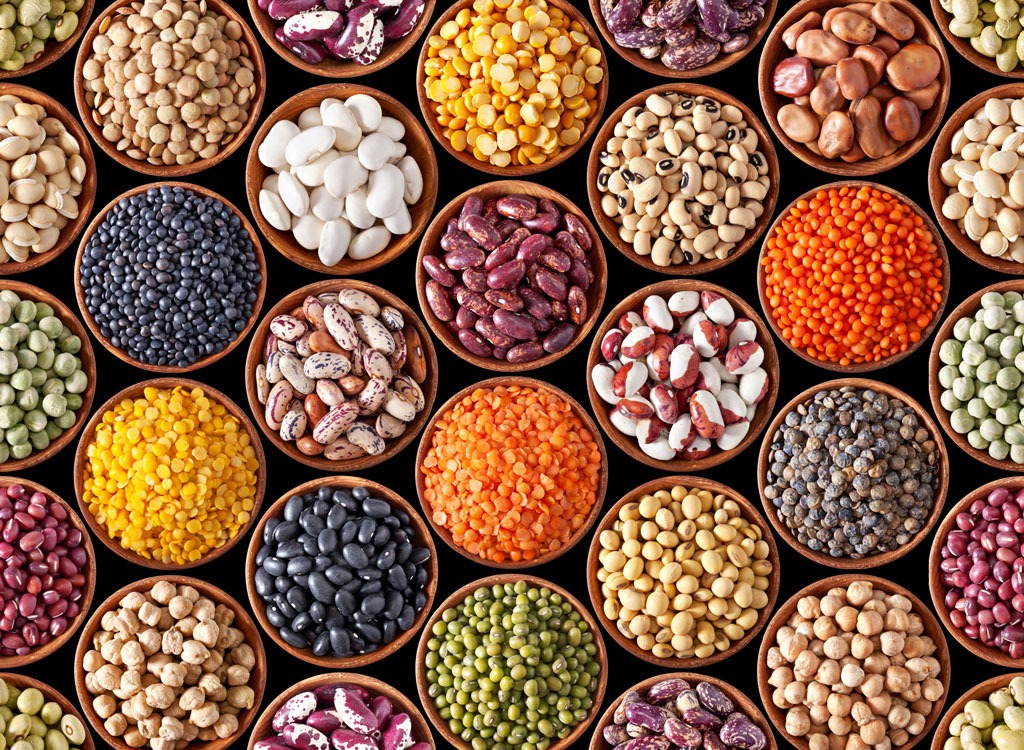
Most plant foods don't contain all of the essential amino acids we need in our diets, explains Lily Chen, founder of MARCOS global nutrition practice and consulting. For that reason, it's important to incorporate variety into your diet. "So if you have lentils on one day, switch it up another day with some quinoa," she says.
Falling for the 'fake Meat'
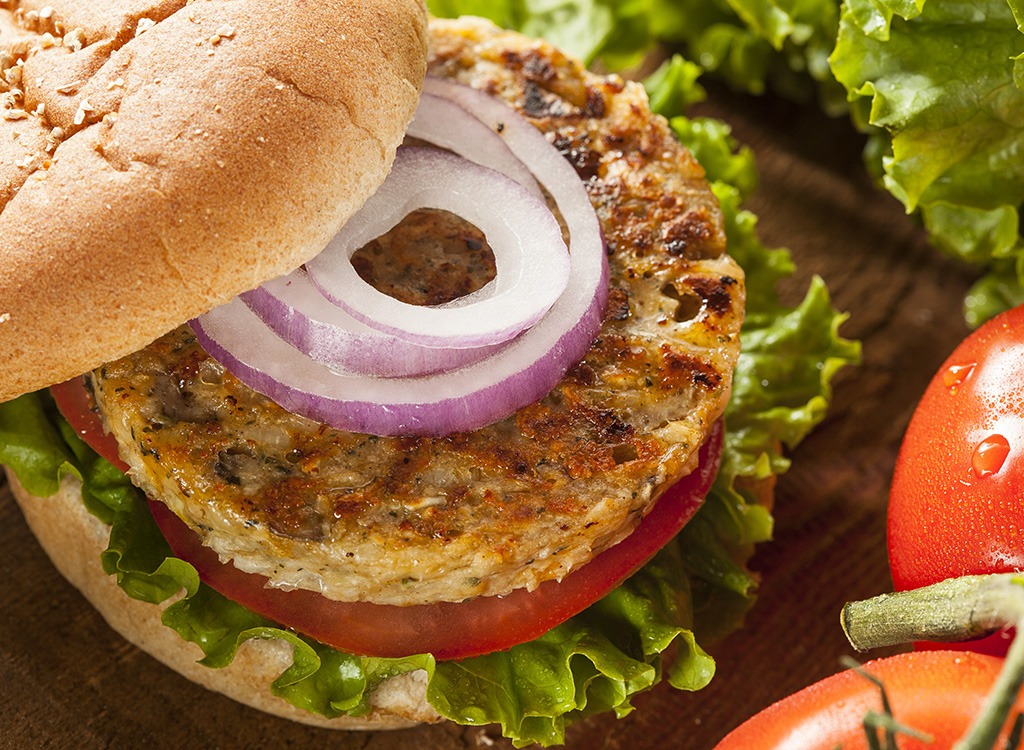
From tofurkey to fake burgers, there's an emerging market of fake meat options for vegetarians. But hold on just a second. Many are heavily processed and complete sodium bombs, says Gisela Bouvier, MBA, RDN, LDN and from B Nutrition and Wellness. "Many vegetarians purchase these items so they can consume more protein as they are usually soy-based," she says. "However, many do more harm than good: They're heavily processed with man-made ingredients and loaded with sodium and preservatives." Love a veggie burger? Check out the Eat This, Not That! exclusive veggie burger guide that ranks 32 of the best and worst.
Thinking Going Vegetarian Means Getting a Pass on Balanced Meals
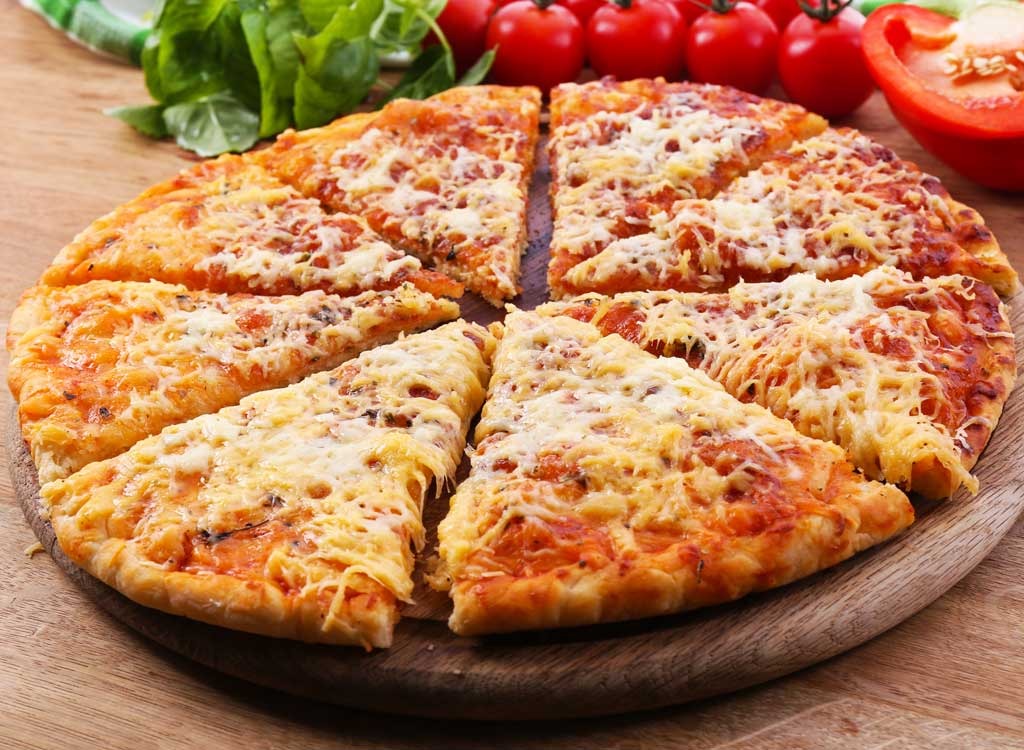
We've all know that vegetarian who doesn't actually eat veggies unless you count the tomato paste in pizza sauce. Moon once worked with a client who was raised as a vegetarian and who would eat fast-food quesadillas and refried bean burritos on white flour tortillas every day, with no vegetables in sight. Two words: No bueno!
"The lesson: Just because you've given up meat, doesn't mean you can ignore the tried and true recommendations to eat more vegetables, fruit, whole grains, nuts and seeds, with minimal added sugars and saturated fats," Moon says.
Turning Salads into Calorie Bombs
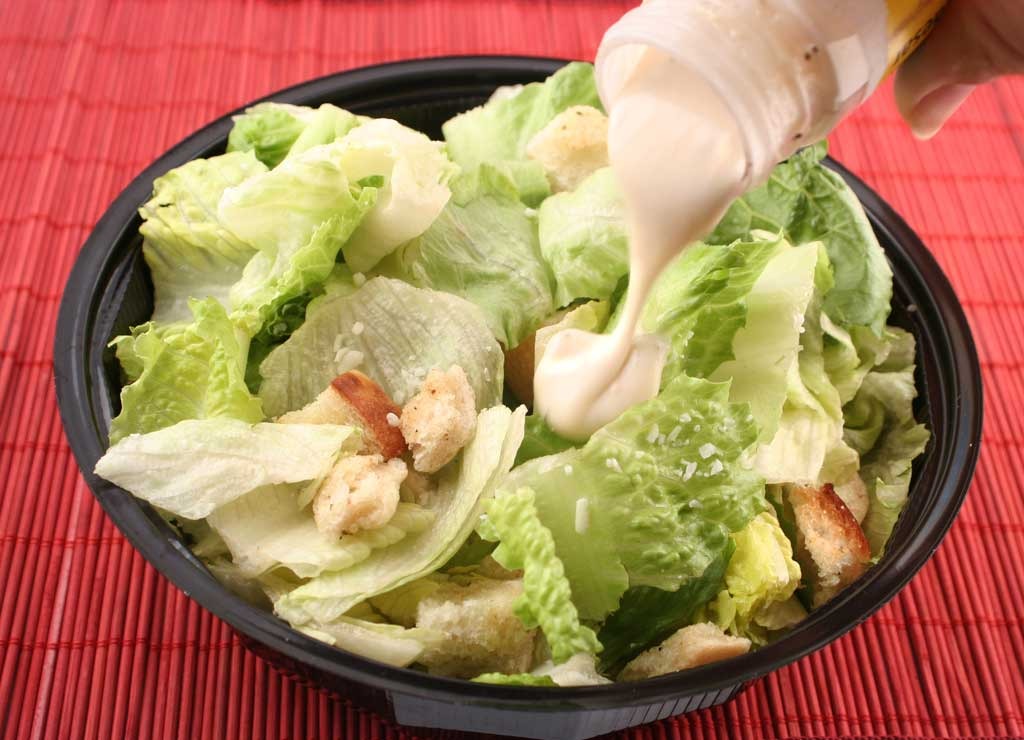
You know not to drown your lettuce in blue cheese and top it with carb-heavy croutons, sure. But if you think oil and vinegar is a good substitute, you still might be a little heavy-handed with the oil. "Some people think that adding vinegar and oil is the answer but each tablespoon of oil adds 120 calories of pure fat," says Nussinow. She suggests using a vinegar, like balsamic, and then adding avocados, olives, nuts or seeds for a healthy fat.
Overdoing it on Trail Mix
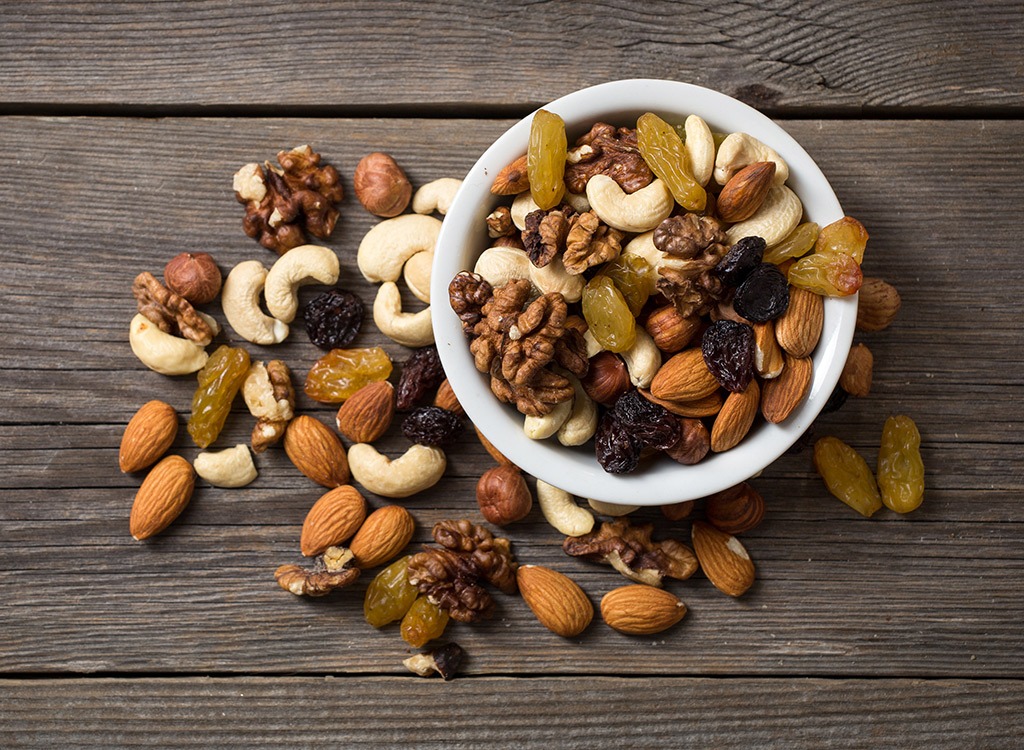
On the hiking trail, trail mix is a great snack while you're torching calories. But mind your portion sizes and mix-ins, cautions Nussinow. One to two ounces is a good portion (think: less than a handful). You want it to be heavy on nuts, such as almonds or walnuts, as well as seeds, like sunflower and pumpkin. Avoid the ones with candies and lots of sugary, dried fruits. If you get a snack attack, here's 50 Healthy Snack Ideas For Weight Loss.
Not Getting Enough B12

First, a vitamin primer: A B12 deficiency, even a slight one, can increase inflammation, which can eventually lead to health issues like stroke, dementia, and weak bones, Moon explains. Severe deficiency leads to fatigue, tingling in fingers and toes, poor cognition and poor digestion, she says.
Plant foods don't contain B12, so vegetarians should actively be trying to seek it out, Moon advises. While there's a small amount of B12 in fermented foods, it's just not enough to be considered an adequate source, she says. A cup of milk and egg per day provides about two-thirds of the day's recommended B12, she says.
"Even though I always recommend whole foods first, this is a case where fortified cereals or a supplement is actually not a bad idea, especially for vegans," Moon says.
Eating More Spinach Than Kale
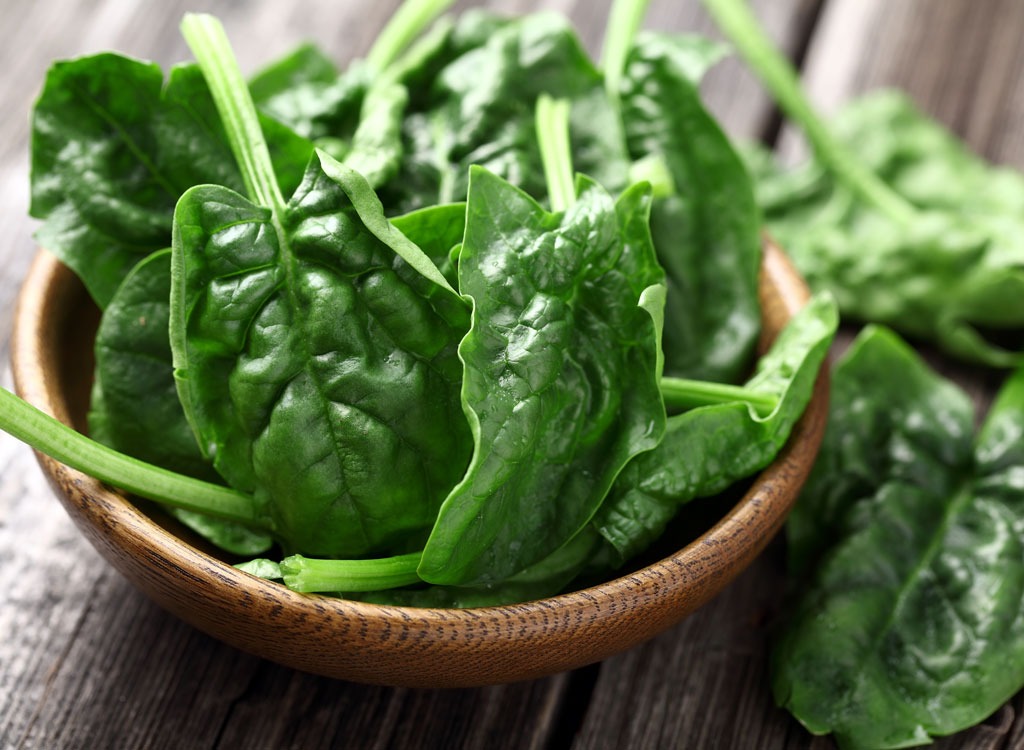
We've got a calcium-deprived bone to pick with you, body! Our bodies don't always do a great job absorbing calcium from plant foods, even when those leafy greens are packed with a significant amount of calcium, Moon explains. For example, the body only absorbs about 5 percent of the calcium that's in spinach, beet greens, and swiss chard because of the compounds that are in them, Moon says. But the body absorbs more — about 50 percent! — of the calcium that's packed in kale, turnip greens and bok choy, she explains. That's higher than the calcium absorption rate from cow's milk, she says, which is about 30 percent. Looking for a better way to build a salad? Try one of these 11 Underrated Salad Greens
Overlooking Other Calcium Sources
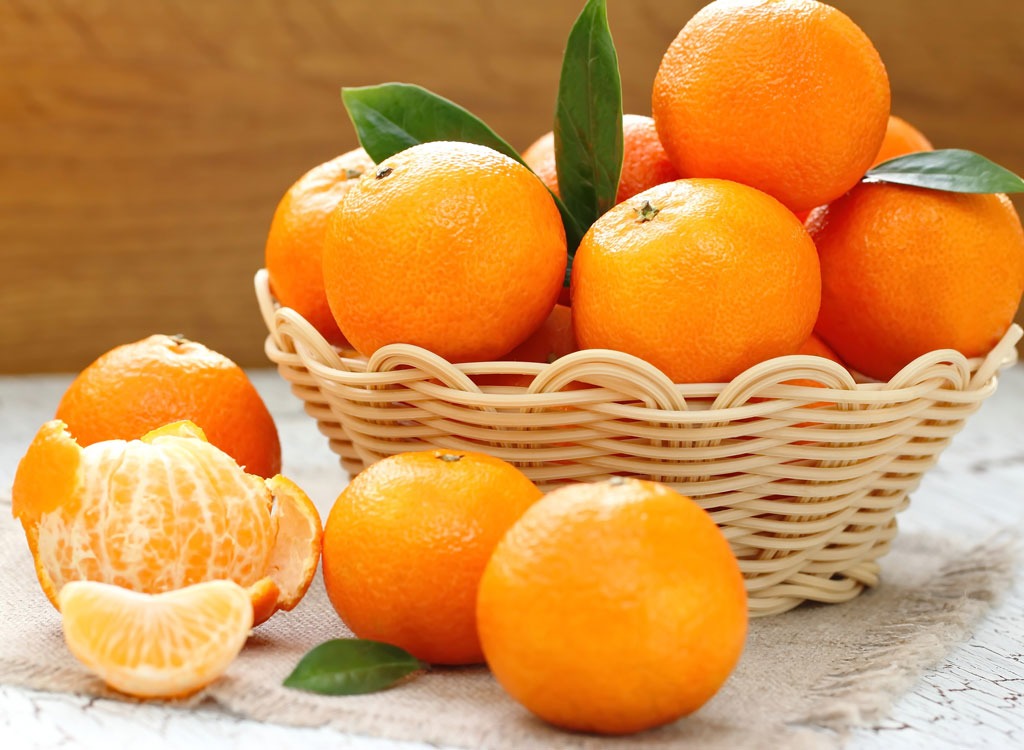
Milk isn't the only source that will do your body good when it comes to calcium. The calcium in tofu and most fortified plant milks has an absorption rate of about 30 percent. But there are some even more unsuspecting foods that vegetarians can get calcium from and have about a 20 percent absorption rate, including white beans, almonds, tahini, figs and oranges, Moon says.
The bottom line: You shouldn't skip super-healthy foods just because they make less calcium available to your body, Moon says. "Just to choose a variety of foods, including plant foods, with more readily available calcium," she says. And hey, don't forget to tap into these 20 Calcium-Rich Foods That Aren't Dairy!
Getting Fooled by Juices
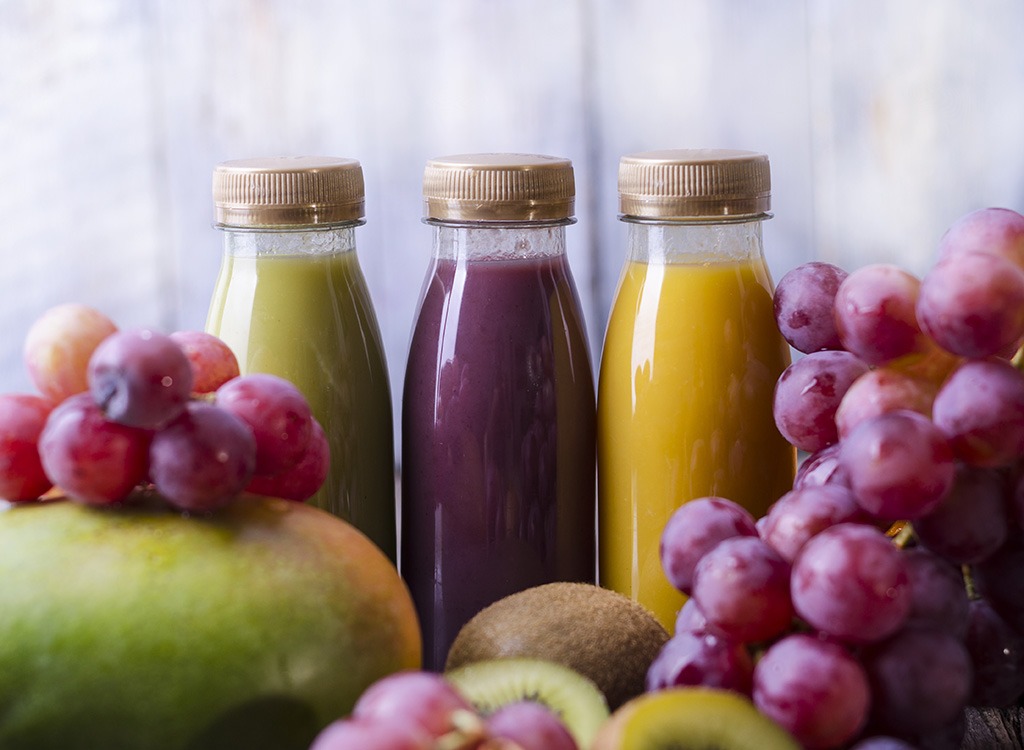
Many juices are billed as healthy. Still, they're chock full of sugar and the calories can add up quickly, Nussinow warns. Instead, she suggests making water and herbal teas your go-to drinks of choice.
Juicing as a Meal
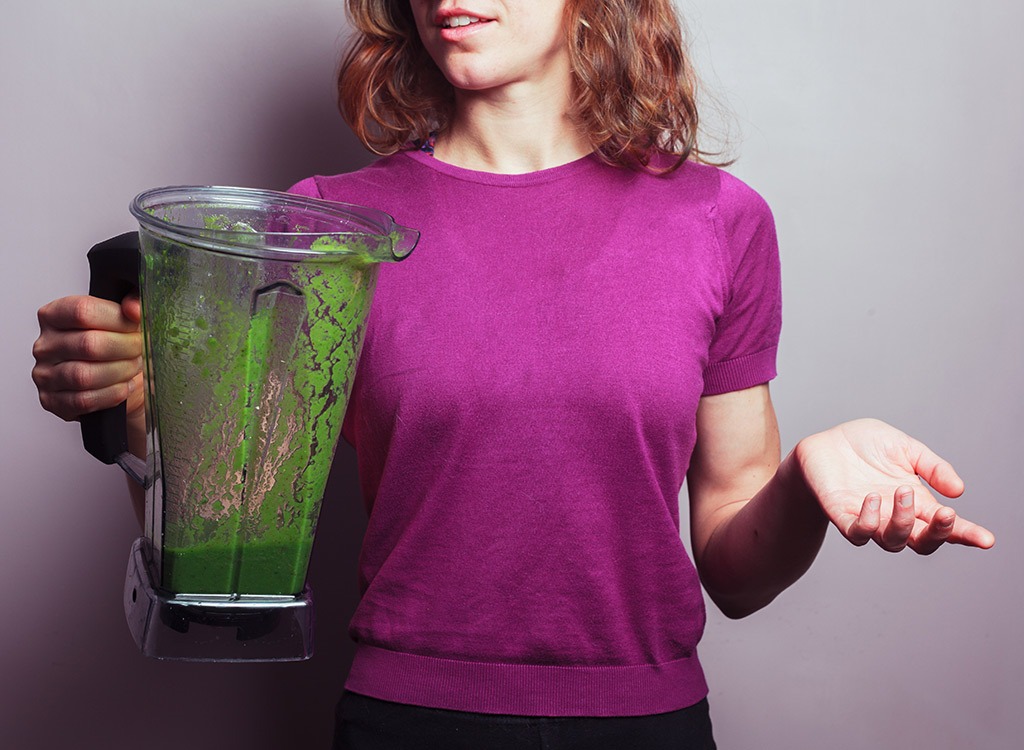
Juice bars are popping up everywhere, but that doesn't mean you should buy into the hype and do a juice cleanse, Brissette warns. (Psst! Here are 10 Signs your Juice Cleanse is Bogus!)
"Juices can help you get more nutrients and disease-fighting phytochemicals into your day, but they're no replacement for whole vegetables and fruit," she says. She goes on to explain that the fiber you get from those whole foods is a boon for your digestion and necessary to promote healthy gut bacteria that helps you control your weight.
Mistaking Quinoa as High-protein
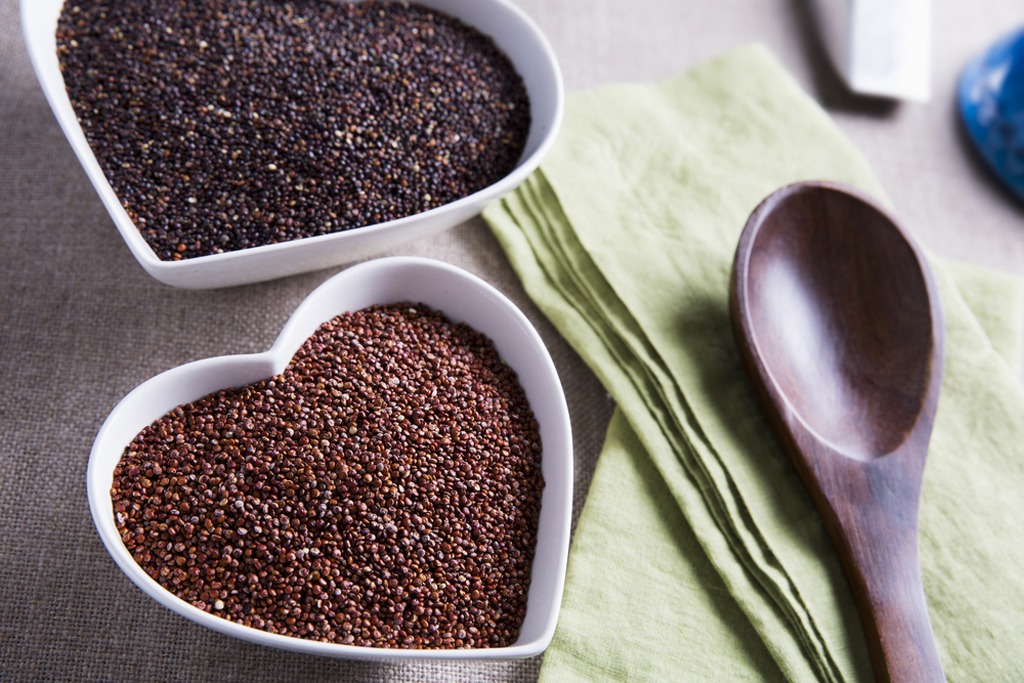
The nutrition world is a cheerleader for quinoa because it contains all of the essential amino acids—which are building blocks of protein, explains Brissette. That's a big deal because most plant foods are missing a few, she says. Still, the total amount of protein in quinoa isn't that much to write home about.
"A half cup of quinoa has about 4 grams of protein," Brissette says. "The same amount of lentils has 9 grams of protein. Quinoa is actually lower in protein than whole grain wheat and brown rice."
Mistaking Almond Milk as a Protein

Yes, almond milk is a low-calorie milk alternative fortified with bone-building calcium and vitamin D, says Brissette. Now, for the bad news: Almond milk counts as a metabolism-boosting protein, though. "While it seems counterintuitive, the protein and fiber from the almonds are left behind in the almond milk-making process," she says.
Forgetting to Plan
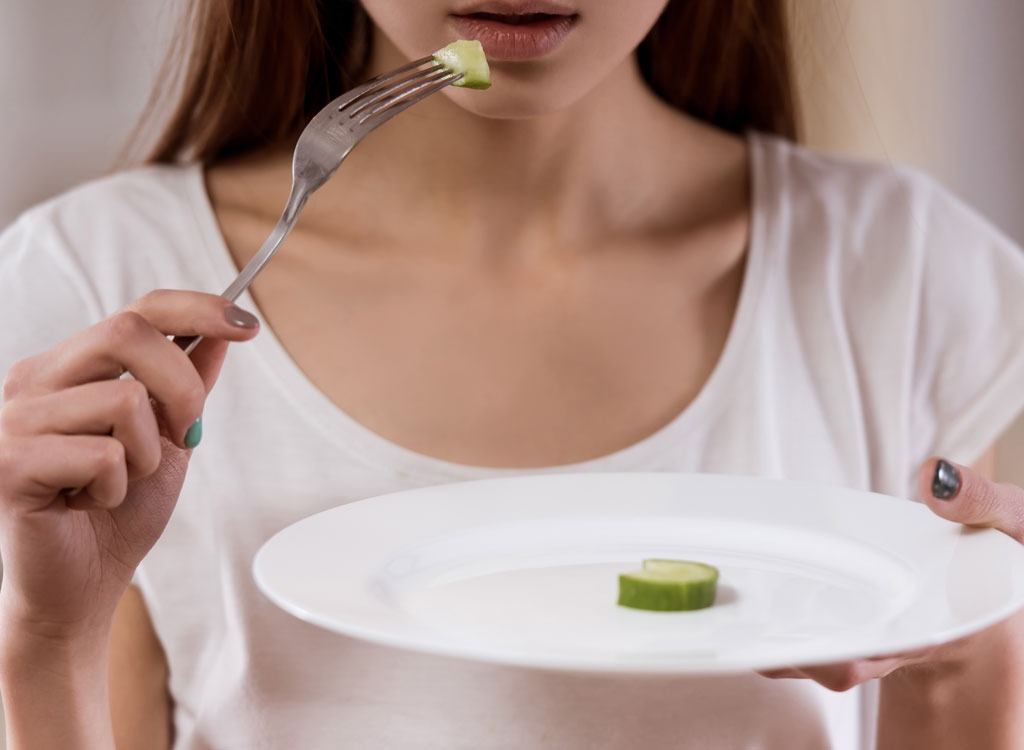
Some cities have bustling vegetarian scenes. But if you're not in, say, a Portland or a New York, you might have a hard time finding a meal that fits your diet. "The vegetarian diet is something that requires a lot of careful planning," Chen says. "It is a complete change in lifestyle! Going out with friends, celebrating holidays, work-related events are all social events—usually highlighted by food." This might require doing a little recognizance and checking out menus online before you go out to eat or bringing your own veggie burger to a backyard BBQ.
Skipping Over the Nutrition Label

Just because something is labeled vegetarian, doesn't mean it's healthy, Chen cautions. Companies are aware of how nutrition-savvy consumers are becoming and, in turn, are slapping healthy labels on vegetarian products. But pay attention to the nutrition labels, Chen says, and definitely zoom in on the sugar content.
Eating Too Many Carbs
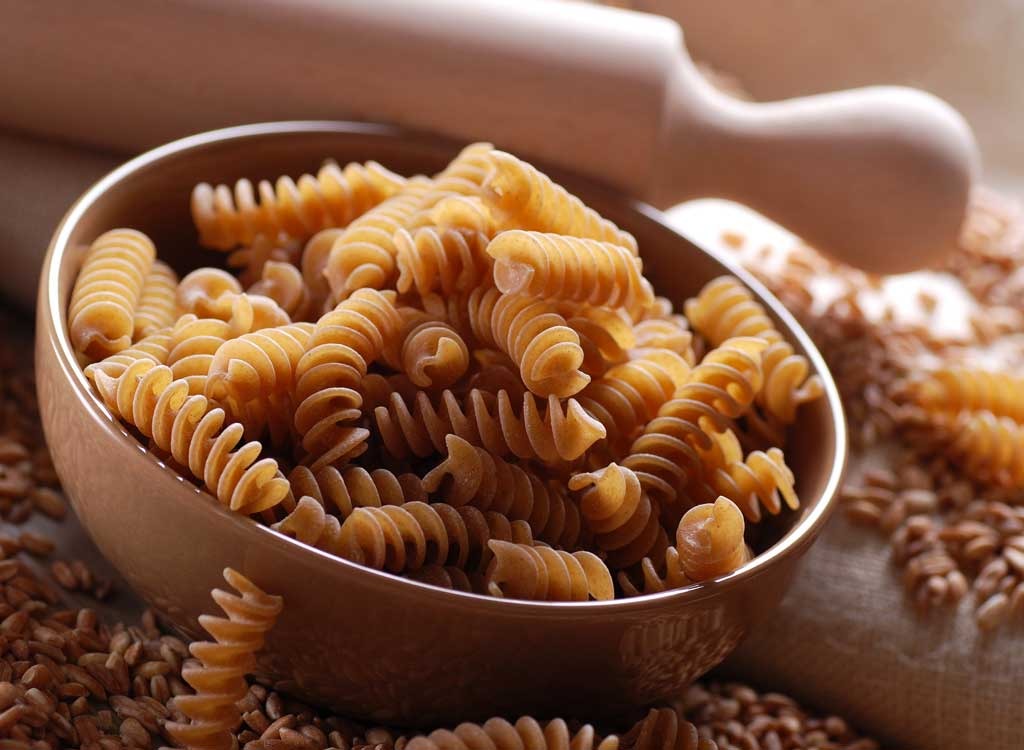
Because there is a lack of protein, a vegetarian diet can be very high in fat and also high in carbohydrates, Bouvier says, which can lead to weight gain.
"Proteins are the building blocks of the body and a lack of protein in the diet can lead to excessive intake of other macronutrients." For example: A vegetarian lunch could be pasta with vegetables. But without the protein, the pasta portion could be larger, making it a greater intake of carbs and a little protein.
Not Meeting with an RDN

Switching to a vegetarian lifestyle? Make it a priority to meet with a registered dietitian nutritionist, suggests Bouvier. That way, you can better plan out well-balanced meals and explore the best plant-based protein options, she says.
Forgetting Supplements

A supplement regimen is also highly important to help replenish the missing nutrients in the body when you're vegetarian, Bouvier says. For a good starting point, check out these 8 Supplements Diet Experts Swear By.
